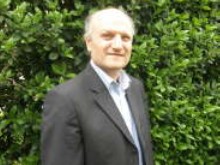 Ridha Mahjoub, Professeur des universités, Université Paris Dauphine (Paris 9)
Ridha Mahjoub, Professeur des universités, Université Paris Dauphine (Paris 9)
9 de abril de 2014
Resumo - Slides
For the past few decades, combinatorial optimization techniques have shown to be powerful tools for formulating, analysing and solving problems arising from practical decision situations. In particular, the polyhedral approach has been successfully applied for many well known NP-hard problems. The equivalence between separation and optimization has been behind a big development of this method. The so-called "Branch and Cut" method, which is inspired from this equivalence, is now widely used for obtaining optimal and near-optimal solutions for hard combinatorial optimization problems. In this talk we present these methods, and discuss some applications to survivable network design models.
Biografia resumida
A. Ridha Mahjoub is Professeur Classe Exceptionnelle of Operations Research and Combinatorial Optimization at Université Paris-Dauphine, Paris, France. He is also member of the LAMSADE laboratory, CNRS. Previous positions include full professor at the University of Brest, France, from 1991 to 1998 and the University of Clermont-Ferrand, France, from 1998 to 2007. Professor Mahjoub holds an undergraduate degree in Mathematics from University of Tunis, Tunisia and a Ph.D. and a Doctorat d'Etat in Operations Research and Combinatorial Optimization from the University of Grenoble, France. His research areas include the theory and applications of polyhedral approaches for modelling, analysing and solving large NP-hard combinatorial optimization problems, mixed integer programming as well as complexity and graph theory. A part of his research has recently focused on the design of cutting plane algorithms for network design problems. Professor Mahjoub is author and co-author of several papers that have appeared in leading journals such as Mathematical Programming, Mathematics of Operations Research, SIAM Journal on Discrete Mathematics, Discrete Mathematics, Discrete Applied Mathematics and Networks. He served as co-director of the Mathematics and Computer Science Department at Université Paris-Dauphine between 2008 and 2013. Dr Mahjoub edited and co-edited books and several special issues of journals. He currently serves as Editor-in-Chief of the international journal RAIRO-Operations Research.
 Ridha Mahjoub, Professeur des universités, Université Paris Dauphine (Paris 9)
Ridha Mahjoub, Professeur des universités, Université Paris Dauphine (Paris 9)